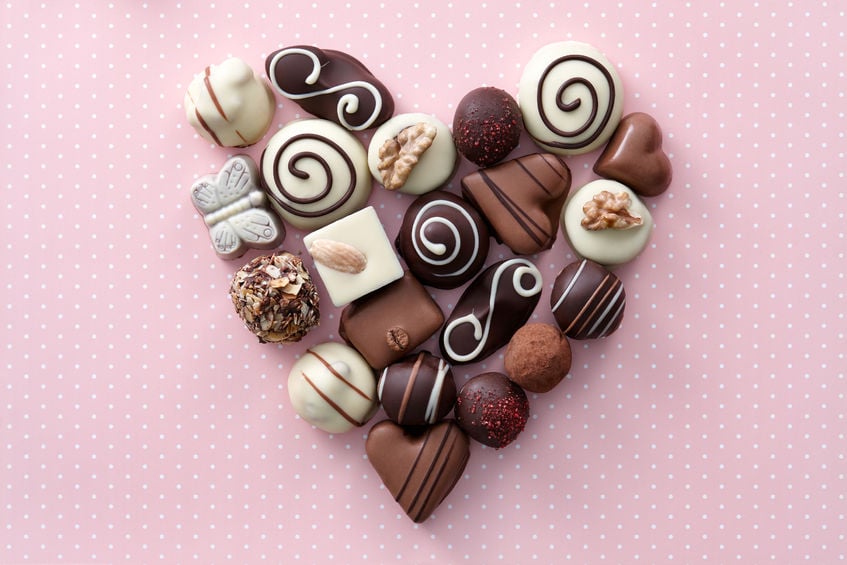 Leslie Williams
Leslie Williams
Every time someone says “Valentine's Day,” I immediately translate it to “Chocolate Day.” Why? Once upon a time, when I was single, I hated Valentine's Day. To combat the negative feelings, my friends and I decided to rebrand and celebrate it as Chocolate Day—the day we would go forth and gorge on beautiful chocolate hearts, dipped strawberries, truffles, and cake. Since then, Feb. 14 has become a day I always look forward to, and Chocolate Day is a tradition I welcome everyone to adopt—single or not.
As I’ve gotten older, though, I’ve had some second thoughts about my beloved Chocolate Day. With my science background and natural curiosity (which is backed by a strong sense of skepticism), I decided to browse PubMed as an alternative way to get my chocolate fix this year. And, apparently, I’m not the only one with an appetite for sweet scientific information, as searching for “chocolate” in PubMed yields nearly 4,000 results. Wow. Below are some of my delicious discoveries.
The Heart
- Cocoa products containing flavanols may reduce risk of cardiovascular disease.
- Flavanol-rich chocolate counteracted vascular impairment after sleep deprivation and restored working memory performance. Here’s another good one by the same author, Grassi D.
- Cocoa flavanols, platelet and leukocyte function.
- Heart failure, Swedish men, and chocolate. You had me at Swedish men.
- The cardiovascular benefits of dark chocolate. Luckily, Ive grown to prefer dark chocolate anyway.
- A nice little review of cocoa, chocolate, and cardiovascular disease.
The Brain
- This article says, “...eating chocolate improved recognition of happy faces…” :)
- Eating a small amount of sweet food improves an experimentally induced negative mood state. Chocolate certainly cheers me up.
- Chocolate and the brain. Those good ole flavanols again.
- How much stevia should be in your chocolate? This article consulted 14 trained judges to help find the answer.
- A normal portion of chocolate exhibits psychopharmacological activity. Hmmm.
- Chocolate vs. white chocolate. Personally, I’ve never been a huge white chocolate fan.
The Process
- Mycobiota of cocoa: from farm to chocolate. Yay, fungi!
- Analytical techniques to objectively assess cocoa quality. Oh, the sweet smell of aroma-formation potential.
- Diversity at different stages of industrial processing of cocoa beans into cocoa powder. I completely forgot about chocolate drinks! Adding those to my shopping list.
While I’ve only listed a handful of articles here, the chocolate rabbit hole on PubMed is overwhelming. All in all, I’ve concluded that while most of the effects of eating chocolate are unknown, there is some evidence that I should choose dark chocolate over other options, and that a certain amount might be good for the heart—and maybe even the brain. So this Valentine’s Chocolate Day, ditch the sappy romantic comedy, curl up with some chocolatey science, and bring on the cocoa flavanols!
Quartzy is the world’s No. 1 lab management platform. We help scientists easily organize orders, manage inventory, and save money. We’re free and always will be. Visit Quartzy.com or reach out at info@quartzy.com.
Interested in writing for The Q? Send us an email!
Share this:

Leslie Williams
Leslie studied neuroscience and conducted research at UCLA. She now works with labs to streamline workflows and save money.
